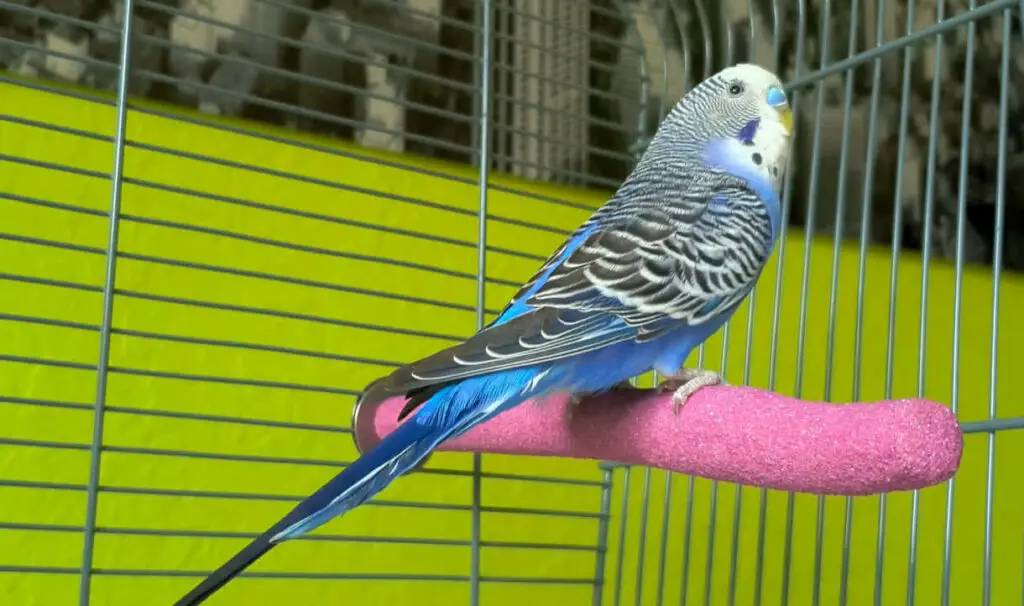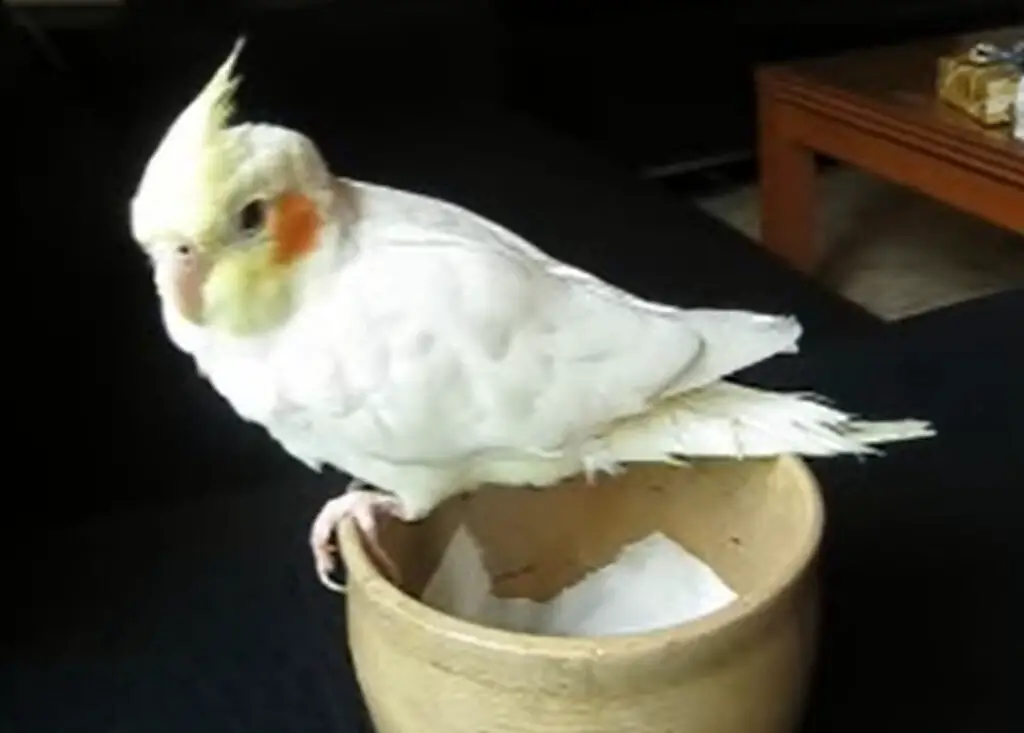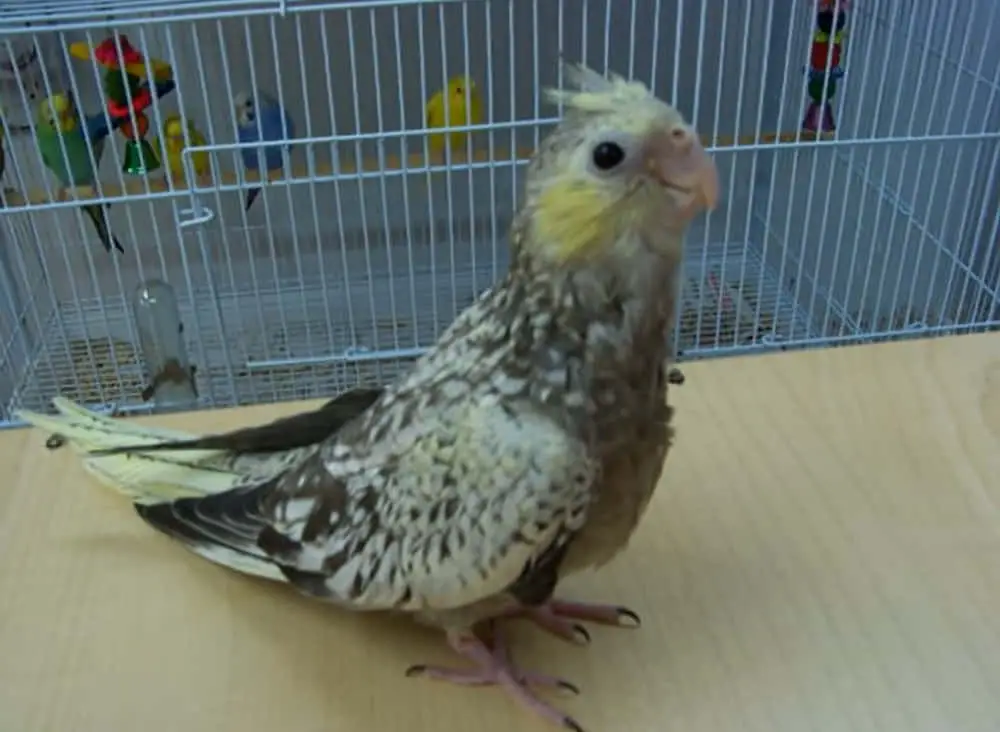Delving into the world of avian diet, we encounter the intriguing query: “Can cockatiels eat brussel sprouts?”. This question displays the conscientious strategy of pet house owners, who search to supply their cockatiels not solely a pleasant culinary expertise but additionally a wholesome one. On this exploration of dietary selections for our feathered associates, we’ll uncover the nuances of together with brussel sprouts in your cockatiel’s weight loss program, deciphering their potential benefits and the related cautions.

Contents
Can Cockatiels Eat Brussel Sprouts?
Cockatiels can eat brussels sprouts carefully as a part of their weight loss program. Nevertheless, it is very important introduce them to new meals steadily and observe their response to make sure they tolerate it effectively. Brussels sprouts are a very good supply of nutritional vitamins and minerals, however they are often considerably excessive in calcium, which could not be best for cockatiels in extra.
When providing brussels sprouts or every other new meals to your cockatiel, make sure that to organize them in a bird-safe method. It’s best to wash the brussels sprouts totally to take away any pesticides or contaminants after which prepare dinner or steam them till they’re tender. Keep away from including any seasonings or sauces, as many human seasonings will be dangerous to birds.
All the time keep in mind that contemporary greens ought to solely be part of your cockatiel’s balanced weight loss program. The vast majority of their weight loss program ought to encompass high-quality industrial hen pellets, together with a wide range of contemporary greens and fruits. Rotate their weight loss program to make sure they obtain a broad vary of vitamins. Moreover, present clear, contemporary water always. When you have any considerations about your hen’s weight loss program or well being, seek the advice of with an avian veterinarian for steering.
Advantages of brussels sprouts for cockatiels
Brussels sprouts can provide 6 potential advantages when included in a cockatiel’s weight loss program carefully:
- Nutrient-rich: Brussels sprouts are a very good supply of important nutritional vitamins and minerals, together with vitamin C, vitamin Okay, vitamin A, vitamin B6, folate, potassium, and dietary fiber. These vitamins can contribute to your cockatiel’s overall health.
- Antioxidants: Brussels sprouts comprise antioxidants, comparable to vitamin C, which may help shield your cockatiel’s cells from injury attributable to free radicals and help their immune system.
- Fiber: The dietary fiber in brussels sprouts can support in digestion and assist stop constipation, a typical challenge in some birds.
- Selection in weight loss program: Providing a wide range of greens to your cockatiel may help stop dietary boredom and supply totally different vitamins, selling a balanced weight loss program.
- Psychological stimulation: Presenting your cockatiel with a variety of meals, together with brussels sprouts, can stimulate psychological and bodily exercise as they discover and manipulate new textures and flavors.
- Beak train: Chewing on brussels sprouts can present a beak exercise in your cockatiel, serving to keep their beak well being.
It is very important keep in mind that whereas brussels sprouts could be a wholesome addition to your cockatiel’s weight loss program, they need to be given carefully. Too many cruciferous greens like brussels sprouts can result in extreme calcium consumption, which is probably not best for cockatiels. Additionally, you must be sure that you put together them in a bird-safe method (washing, cooking, and avoiding seasonings) and introduce them steadily into your hen’s weight loss program.
Understand that each hen is exclusive, and particular person preferences and tolerances could differ. Some cockatiels could love brussels sprouts, whereas others could not present a lot curiosity. As with all dietary adjustments, it’s a good apply to seek the advice of with an avian veterinarian for steering in your particular hen’s dietary wants.

Doable brussel sprouts weight loss program for cockatiels of various ages
Brussels sprouts will be included in a cockatiel’s weight loss program at varied levels of their life. Nevertheless, it is very important modify the preparation and portion dimension based mostly on the hen’s age and dietary wants. Here’s a basic guideline for incorporating brussels sprouts into the weight loss program of cockatiels at totally different life levels:
Juvenile Cockatiels (0-6 months)
- For younger cockatiels, you may introduce brussels sprouts as early as 3-4 months outdated.
- Minimize brussels sprouts into small, manageable items to make it simpler for younger birds to eat.
- Provide a small quantity of brussels sprouts together with their common weight loss program to encourage them to discover new meals.
- Make sure that brussels sprouts are totally cooked or steamed for simpler digestion.
Grownup Cockatiels (6 months and older)
- Grownup cockatiels can have a barely bigger portion of brussels sprouts as a part of their balanced weight loss program.
- Provide a mixture of contemporary greens, comparable to brussels sprouts, together with high-quality industrial cockatiel pellets and a restricted quantity of seeds.
- Brussels sprouts will be served both cooked or uncooked, however cooking could make them simpler to digest.
Senior Cockatiels (10+ years)
- Senior cockatiels could have dietary restrictions and will require a softer, cooked model of brussels sprouts if they’ve issue chewing.
- Monitor older birds intently and modify their weight loss program based mostly on their particular person well being and dietary necessities.
Breeding and Lactating Cockatiels
- Breeding and lactating cockatiels could profit from a extra nutrient-dense weight loss program to help their elevated vitality wants.
- Provide a wide range of contemporary greens, together with brussels sprouts, together with further protein sources comparable to hard-boiled eggs and sprouted seeds.
No matter age, it’s essential to keep up a balanced weight loss program in your cockatiel. Brussels sprouts must be only one part of their general diet. Make sure that to scrub the greens totally to take away any contaminants and supply them in bird-safe parts. Monitor your hen’s reactions and modify their weight loss program accordingly. All the time have contemporary, clear water accessible. Final however not least, let’s seek the advice of with an avian veterinarian for particular dietary suggestions based mostly in your cockatiel’s age, well being, and particular person wants.
Often Requested Questions
Sure, cockatiels can eat brussel sprouts each day however cockatiels actually mustn’t eat brussel sprouts each day. Too many brussel sprouts are supplied to cockatiels each day could result in extra calcium consumption. This isn’t really useful for cockatiels. Pet house owners ought to give cockatiels brussel sprouts a few times per week and rotate with different greens.
Though cockatiels can eat each uncooked and cooked brussel sprouts, they need to be fed with cooked ones. Cooked greens are usually really useful for simpler digestion and discount of potential digestive points.
Sure, there are potential dangers when cockatiels eat brussel sprouts. If cockatiels eat too many brussel sprouts, this may trigger your pet extra calcium consumption, resulting in digestive points, and fuel. It’s best to supply them carefully and monitor your hen’s response.







